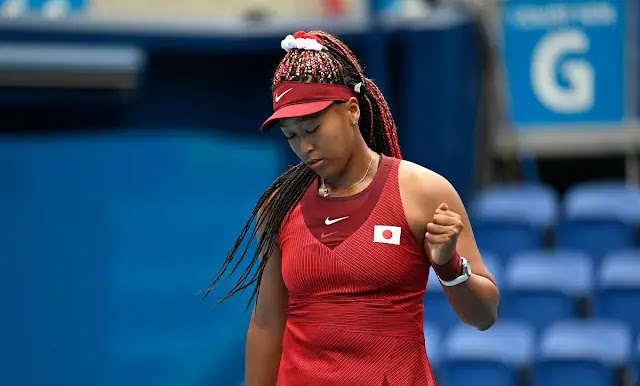Championing Mental Health Naomi Osakas : Professional athletes are
no strangers to the spotlight. They perform at the highest level and face
tremendous pressure to succeed, often sacrificing their physical and mental
well-being in the process. Tennis player Naomi Osaka, however, made headlines at
the French Open in May 2021 for a different reason - her decision to prioritize
her mental health over her career.
Osaka, a four-time Grand Slam singles champion,
withdrew from the tournament after the first round, citing her struggles with
anxiety and depression. She had previously announced that she would not
participate in mandatory press conferences during the event, citing concerns
about the negative impact that such media appearances could have on her mental
health.
The tennis world was initially divided on Osaka's decision. Some criticized her for not fulfilling her contractual obligations to speak to the media, while others applauded her bravery for prioritizing her mental health. In her statement, Osaka explained that she had been struggling with depression since winning the 2018 US Open and had experienced "huge waves of anxiety" before speaking to the media.
Osaka's decision sparked a larger conversation about mental health in sports, particularly for high-profile athletes who are expected to perform under immense pressure. Many athletes face mental health challenges, including anxiety, depression, and burnout, but may feel ashamed or stigmatized for speaking out about their struggles. Osaka's decision to prioritize her well-being sent a powerful message that athletes deserve the same level of care and support for their mental health as they do for their physical health.
Since her withdrawal from the French Open, Osaka has continued to speak out about the importance of mental health, becoming an advocate for change in the sports world. She has worked with organizations like Laureus and the Women's Tennis Association (WTA) to promote mental wellness and encourage other athletes to speak up about their experiences. Her actions have also prompted some changes in the way that tennis tournaments handle media appearances, with the WTA announcing that it will allow players to opt-out of press conferences for mental health reasons.
Naomi Osaka's decision to withdraw from the French Open was a powerful statement about the importance of prioritizing mental health, not just in sports, but in all aspects of life. Her courage in speaking out about her struggles has sparked a larger conversation about mental wellness and brought attention to the unique challenges that athletes face. As we continue to navigate a world that can be overwhelming and stressful, we can all learn from Osaka's example and prioritize our own mental health as a crucial part of overall well-being.
One of the most significant takeaways from Osaka's decision is that athletes are not immune to mental health struggles. While they may be seen as strong, resilient individuals, they can still experience stress, anxiety, depression, and other mental health challenges. In fact, the pressure that athletes face - from media attention, fans, sponsors, and their own expectations - can exacerbate these challenges.
Osaka's decision also highlighted the importance
of self-care and seeking help when needed. Rather than pushing through her
struggles and ignoring her mental health needs, she made the brave decision to
prioritize her well-being. By doing so, she demonstrated that seeking help for
mental health challenges is not a sign of weakness, but rather a sign of
strength and self-awareness.
Ultimately, Naomi Osaka's decision to withdraw from the French Open and prioritize her mental health was a powerful statement that sparked a much-needed conversation about mental health in sports. By being honest about her struggles and advocating for greater awareness and support, she has helped to break down the stigma surrounding mental health and encourage others to prioritize their well-being. As we continue to navigate a world that can be stressful and challenging, we can all learn from Osaka's example and prioritize our own mental health as a critical component of overall wellness.







0 Comments